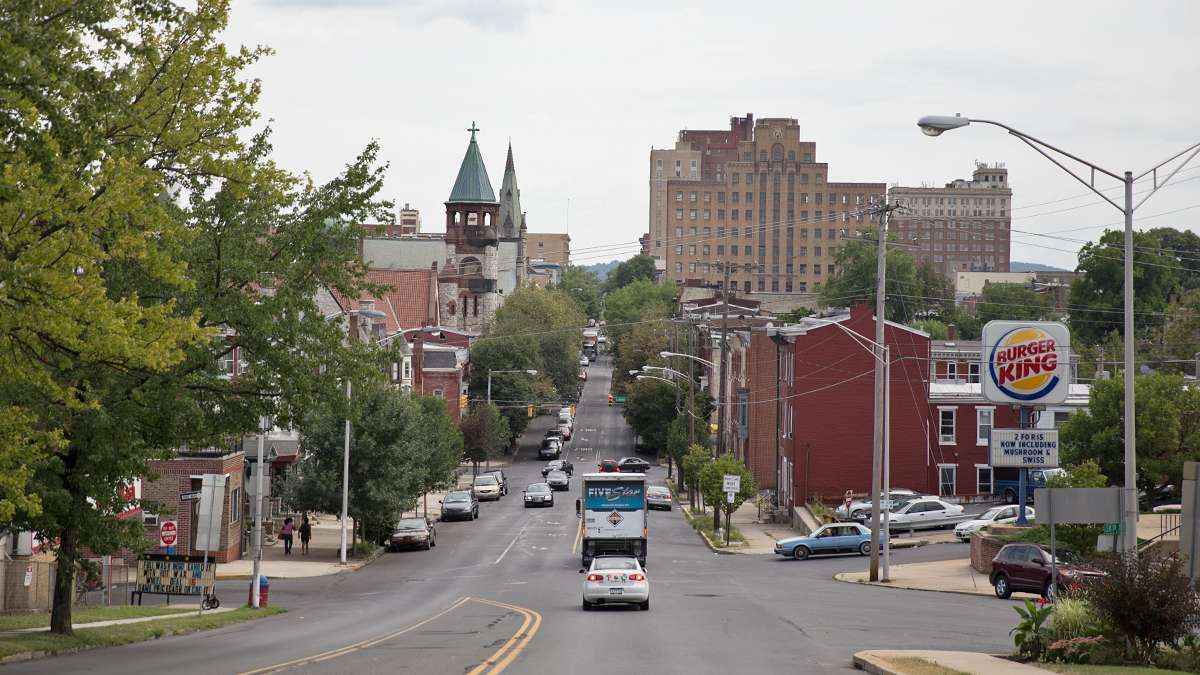Pa. gets $310 million in tax credits to attract investment in distressed communities

Community First Fund received tax credits that could go toward redevelopment projects in Reading
The federal New Market Tax Credits program authorized $7 billion in tax credits nationwide.
The holiday season came a little early this year for community development organizations that got a piece of $7 billion in tax credits allocated by the Department of the Treasury last week. The New Market Tax Credits program helps low-income or economically distressed cities attract investors in commercial projects.
“Investment capital goes to where it’s going to get the greatest return for the lowest risk,” said Annie Donovan, director of the Community Development Financial Institutions Fund, which distributes the tax credits. “In a lot of these communities, there’s a perception, sometimes a misperception, that investing in these communities is riskier.”
The NMTC helps make commercial developments in these communities more attractive to investors.
Five Pennsylvania-based organizations received allocations ranging from $45 to $80 million. One, PNC Community Partners, has national reach, but the rest are local organizations in Pittsburgh, Philadelphia and the Midstate.
“But for” projects
The NMTC program is supposed to bridge the equity gap in distressed cities. Community First Fund President and CEO Daniel Betancourt said the reality is that it’s just much harder to fund a major development project — a strip of shops, a charter school, a small business incubator — in low-income cities.
“The economics don’t work for projects in cities. The appraisal values come in lower than in suburban markets, because there aren’t many projects this size,” said Betancourt. There’s also a worry about tenants who can’t afford high rents or shoppers who won’t spend as much money.
Take the Reading Outlet Center, once a commercial hub that sat vacant for the last 15 years. A developer was interested in turning the space into retail, restaurants and loft apartments. Betancourt said the project was going to cost $12 million, but due to the city’s economic status, the bank appraised to project at $8 million.
“Right there, the bank’s only going to lend you based on the appriasal value, so we used [New Market Tax Credits] to close that gap,” said Betancourt.
Community First Fund transferred the tax credit to the developer. The credits gave the developer more equity to offer an investor and allowed the developer to take out loans at a lower rate. These are the sort of projects that Community First Fund looks to help with NMTCs: shovel-ready developments that will serve low-income communities, if only they can get a little boost.
Betancourt calls them the “but for” projects, as in, these projects wouldn’t happen “but for” this tax credit program.
Inspiring investment
Distressed cities have a classic chicken-and-the-egg situation. They can’t attract investors because there’s no track record of development. They can’t get developments without investors. The NMTCs are intended to stop that cycle by giving investors an incentive to take a chance on these communities.
And it has worked in many cases. In Philadelphia, PIDC Community Capital has received NMTC allocations four times for a total of $208 million.
“We are seeing follow-on projects in the neighborhoods where we have made our initial investments,” said PIDC vice president of financial services Wendy Weiss. “We used tax credits for a senior center, which was the first investment in that particular neighborhood in over twenty years. Now, we’re seeing a new high school building on a huge parcel of land, caddy-corner from the senior center. That’s just going to breathe even more life into the neighborhood.”
In Lancaster, NMTCs were used to develop eight vacant storefronts into businesses with apartments on top.
“Since then, there’s been the development of the Excelsior, an event place in a building that was vacant for 25 years,” said Betancourt. “The Chamber of Commerce just bought a building and is investing $7 million into that space. All because of that initial tax credit.”
Bipartisan success
The NMTC program has been helping these “but for” projects since 2000. The Department of the Treasury initially set it up as a seven year program, but it was so popular that it was renewed every year or two since it expired.
Last year, however, the program got a big boost when it came time for Congress to reauthorize it.
“This is the first time that they’ve done a five-year extension, which is a great sign of bipartisan support for the program,” said Donovan. “It shows we have strong support on Capitol Hill.”
It also means that, whatever else happens, distressed cities can count on the NMTC program through the next presidential administration.
WHYY is your source for fact-based, in-depth journalism and information. As a nonprofit organization, we rely on financial support from readers like you. Please give today.


